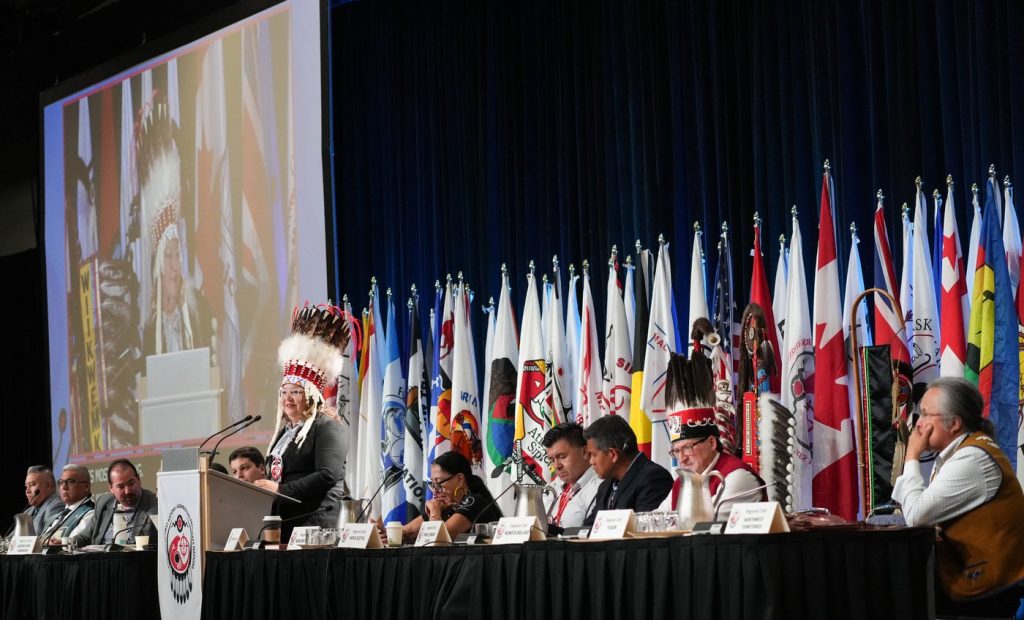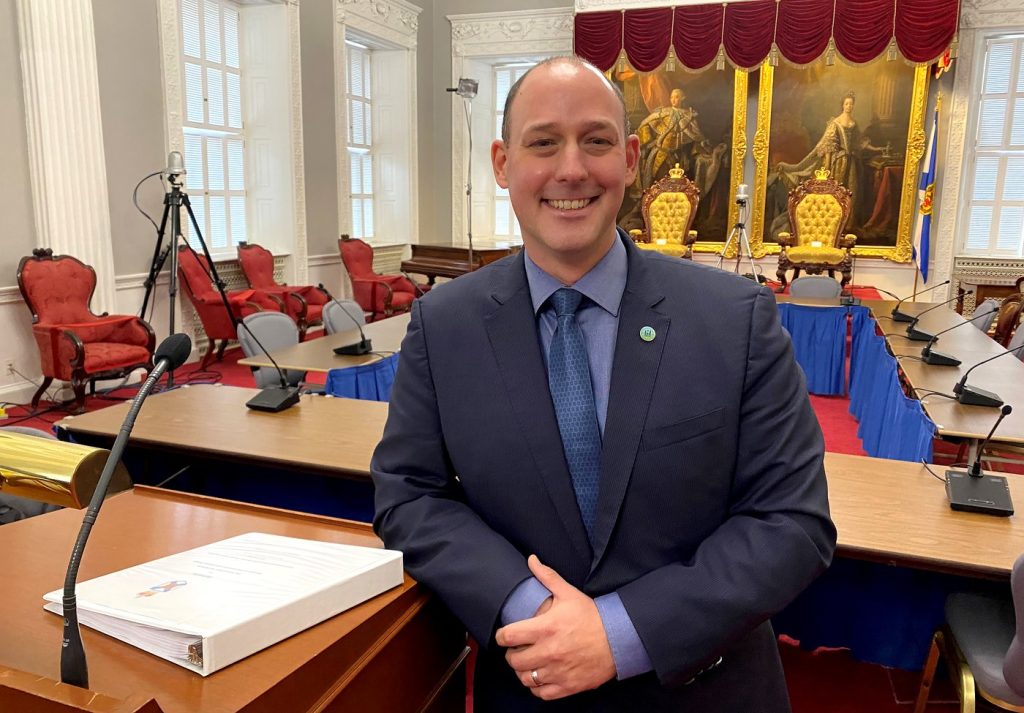AFN demands national inquiry into systemic racism in policing, police-related deaths

Posted Dec 3, 2024 05:00:04 AM.
Last Updated Dec 3, 2024 07:15:28 PM.
OTTAWA — The Assembly of First Nations is demanding the federal government launch a national inquiry into systemic racism in policing and the deaths of First Nations people.
A resolution penned by Chief Allan Polchies of St. Mary’s First Nation says despite 20 individual inquiries and commissions into the police and justice system since 1989, the federal government has failed to make substantive changes to address systemic racism within the RCMP and other agencies.
Polchies told those gathered at the AFN’s special chiefs assembly in Ottawa that First Nations people should feel safe on their own lands, and shouldn’t be afraid of police.
His resolution comes after a string of incidents between Aug. 29 and Sept. 24 that left nine First Nations people dead during or after interactions with police.
“The investigations into the recent deaths of First Nations people after interacting with police are being conducted in isolation of each other, which is not drawing conclusions as one interrelated epidemic,” the resolution says.
Beyond calling for a national inquiry, the resolution also calls for demilitarization of police forces and the establishment of a national crisis intervention team across Canada that can support people in crisis.
It also says that immediately after a serious incident has occurred involving a First Nations person, the investigation team should include a First Nations person.
The resolution was passed by consensus.
In a statement, Public Safety Minister Dominic LeBlanc’s office said the RCMP is co-operating with independent police oversight bodies that are looking into the deaths.
“We recognize that recent officer-involved fatal incidents in Indigenous communities have been incredibly difficult for community members, and most of all the loved ones of the deceased. Our thoughts are with them,” the statement said.
Earlier in the morning, the AFN’s National Chief, Cindy Woodhouse Nepinak, told delegates that underfunding and the lack of First Nations police forces is “costing First Nations lives.”
“It’s time to say once and for all that our First Nations lives matter in this country.”
The first day of the three-day assembly was mostly cordial after a testy October meeting that saw chiefs vote down a $47.8-billion child welfare reform deal with Canada. That deal was reached after decades of legal fights that found the federal government discriminated against First Nations children.
It also comes as chiefs grow increasingly worried about a change in government. A federal election is looming in the next year, and a gridlocked Parliament this fall has meant key pieces of legislation for First Nations people are not moving forward.
Woodhouse Nepinak acknowledged the upcoming election in her opening remarks, saying the AFN will continue to “push the boundaries of the law and ensure our inherent and treaty rights will be fully implemented in Canada.”
She also urged First Nations people to participate in the election, saying their voice and votes matter.
Anaida Poilievre, the spouse of Conservative Leader Pierre Poilievre, was initially scheduled to speak on Wednesday about human trafficking on a panel with singer and advocate Paul Brandt. A Conservative Party spokesperson and the women’s council both confirmed Tuesday she would not be participating.
The deputy chief of Nishnawbe Aski Nation, Anna Betty Achneepineskum, told those gathered on Tuesday that the AFN’s women’s council was not consulted on the agenda item. With about a dozen delegates gathered around her, Achneepineskum said there are First Nations people who are strong voices and advocates on the issue.
“We’re grateful that Mrs. Anaida Poilievre changed her mind and will not be presenting,” Achneepineskum said.
A spokesperson for the Conservative party said Tuesday morning that Anaida Poilievre would not be attending because she is ill.
The assembly’s gatherings are often attended by federal politicians, and Prime Minister Justin Trudeau, Bloc Québécois Leader Yves-François Blanchet and NDP Leader Jagmeet Singh are scheduled to speak. So are multiple government ministers.
Pierre Poilievre is not scheduled to be in attendance and there are no Conservative MPs listed on the agenda.
Woodhouse Nepinak said in an interview on Monday the AFN will continue to invite Poilievre to address chiefs, and that there is hope he can join them for discussions at the next assembly.
Poilievre addressed the AFN at its annual general assembly in July, the first time he spoke to the group since he was named party leader in 2022.
Some chiefs appeared to like some of what he had to say, applauding generously during a speech that outlined his commitments to advancing economic reconciliation with First Nations and creating jobs, especially through resource development.
Judy Wilson, a delegate at that gathering, said at the time it should be acknowledged that a handful of veterans and representatives from the assembly’s LGBTQ+ council stood silently and turned their back on Poilievre while he spoke.
She then told Poilievre that he did not mention the issue of murdered and missing Indigenous women or the United Nations Declaration on the Rights of Indigenous Peoples, as well as inherent rights, during his speech.
Some chiefs have met with members of the Conservative party while in Ottawa.
Woodhouse Nepinak told delegates Tuesday morning that there’s a fundamental shift occurring in the country, and First Nations are at the centre of it.
“There’s so much work ahead, but by strengthening our relations — (being) united — we can do anything together,” she said.
She was talking about growing Indigenous economies, reconciliation and about a series of favourable court decisions that held Canada accountable for not living up to its treaty obligations and affirmed First Nations rights.
“Each of these victories send a message to provincial and federal governments that First Nations can no longer be left on the sidelines,” she said.
This report by The Canadian Press was first published Dec. 3, 2024.
Alessia Passafiume, The Canadian Press








